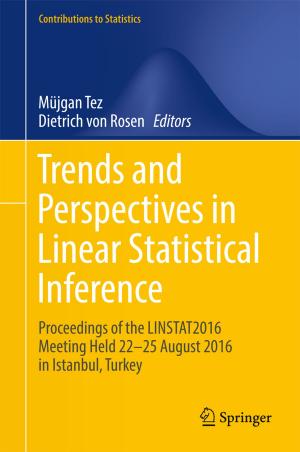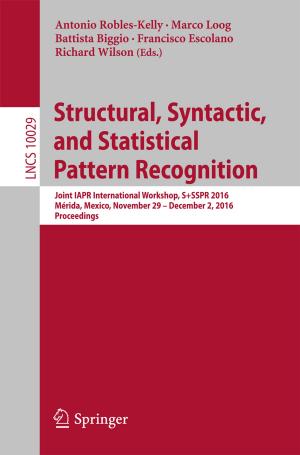The Phenomenological Critique of Mathematisation and the Question of Responsibility
Formalisation and the Life-World
Nonfiction, Religion & Spirituality, Philosophy, Phenomenology, Ethics & Moral Philosophy| Author: | ISBN: | 9783319098289 | |
| Publisher: | Springer International Publishing | Publication: | November 19, 2014 |
| Imprint: | Springer | Language: | English |
| Author: | |
| ISBN: | 9783319098289 |
| Publisher: | Springer International Publishing |
| Publication: | November 19, 2014 |
| Imprint: | Springer |
| Language: | English |
This edited collection discusses phenomenological critiques of formalism and their relevance to the problem of responsibility and the life-world. The book deals with themes of formalization of knowledge in connection to the life-world, the natural world, the history of science and our responsibility for both our epistemic claims and the world in which we live. Readers will discover critiques of formalization, the life-world and responsibility, and a collation and comparison of Patočka’s and Husserl’s work on these themes. Considerable literature on Husserl is presented here and the two themes of epistemic responsibility and the life-world are discussed together. This work specifically emphasizes the interrelatedness of these existential aspects of his work – self-responsibility and the crisis – as not only epistemological, but also related to human life. This volume also introduces Jan Patočka to English-speaking readers as a phenomenologist in his own right. Patočka shows us, in particular, the significance of the modern abyss between our thinking and the world. Readers will discover that this abyss is of concern for our everyday experience because it leads to a rupture in our understanding of the world: between the world of our living and its scientific construct. We see that Patočka continually emphasized the relevance of Husserl’s work to existential questions relating to human responsibility and the life-world, which he admits is left largely implicit in Husserl’s work. This edited collection will spark discussion on the question of responsibility against the backdrop of formalized knowledge which is increasingly inaccessible to human understanding. Despite the complexity of some of the analyzed ideas, this book discusses these themes in a clear and readable way. This work is scholarly, exact in its discussion and authoritative in its reading, but at the same time accessible to anyone motivated to understand these debates.
This edited collection discusses phenomenological critiques of formalism and their relevance to the problem of responsibility and the life-world. The book deals with themes of formalization of knowledge in connection to the life-world, the natural world, the history of science and our responsibility for both our epistemic claims and the world in which we live. Readers will discover critiques of formalization, the life-world and responsibility, and a collation and comparison of Patočka’s and Husserl’s work on these themes. Considerable literature on Husserl is presented here and the two themes of epistemic responsibility and the life-world are discussed together. This work specifically emphasizes the interrelatedness of these existential aspects of his work – self-responsibility and the crisis – as not only epistemological, but also related to human life. This volume also introduces Jan Patočka to English-speaking readers as a phenomenologist in his own right. Patočka shows us, in particular, the significance of the modern abyss between our thinking and the world. Readers will discover that this abyss is of concern for our everyday experience because it leads to a rupture in our understanding of the world: between the world of our living and its scientific construct. We see that Patočka continually emphasized the relevance of Husserl’s work to existential questions relating to human responsibility and the life-world, which he admits is left largely implicit in Husserl’s work. This edited collection will spark discussion on the question of responsibility against the backdrop of formalized knowledge which is increasingly inaccessible to human understanding. Despite the complexity of some of the analyzed ideas, this book discusses these themes in a clear and readable way. This work is scholarly, exact in its discussion and authoritative in its reading, but at the same time accessible to anyone motivated to understand these debates.















